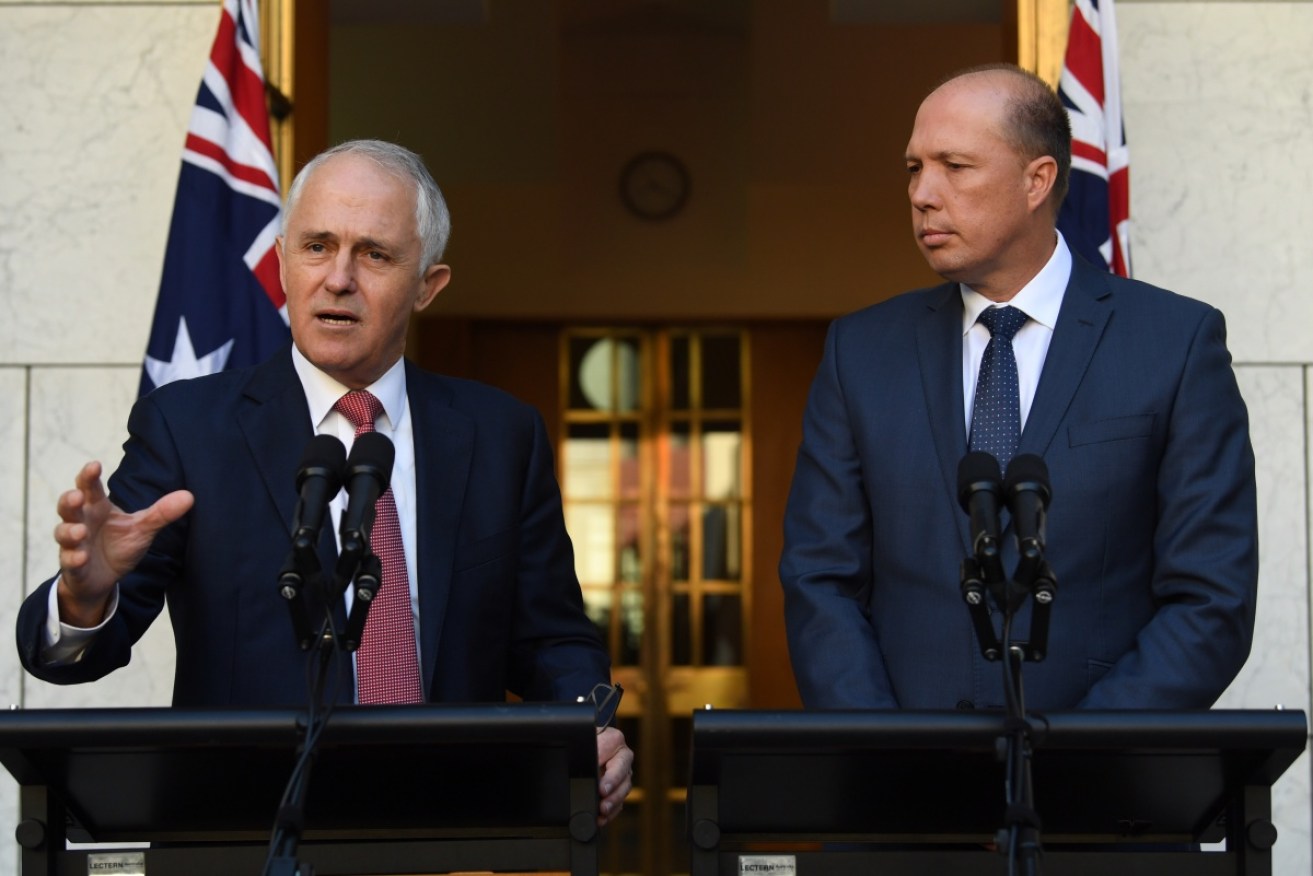English language citizenship test labelled too tough by Coalition senators

Prime Minister Malcolm Turnbull insists citizenship must reflect Australian values as he unveiled tighter requirements for new applicants. Photo: AAP
The Coalition’s own senators have labelled the proposed strengthening of English language citizenship requirements as too tough.
University-level English language skills are just one of a number of changes to the citizenship process proposed by the Federal Government, which have been met with criticism from other parties and the broader community.
The legislation is destined to be voted down in the Senate, after key crossbench senator Nick Xenophon confirmed his team of three senators could not support the bill.
A Senate committee’s report has been presented to the Upper House, and argued the English language requirement “should not be so high as to disqualify from citizenship many Australians who, in the past, and with a more basic competency in the English language, have proven to be valuable members of the Australian community”.
“The committee agrees that a good understanding and use of the English language is essential in order to enjoy the benefits, and fulfil the obligations, of Australian citizenship,” the report stated.
“The committee cautions, however, against the adoption of a standard that many current citizens could not reach.”
“The committee does not share these concerns and appreciates that in these times of heightened security environments, situations may arise that would not previously have been apprehended,” the report stated.
In critiquing the Coalition’s bill, the committee also took a swipe at the way in which the proposed changes were announced.
“The committee notes that, regrettable as it is, this action of ‘legislation by media release’ is all too common in recent decades but for many valid reasons has become a fact of life,” it said.
Requiring university-level English for citizenship ‘elitist’
Federal Opposition members of the committee filed a dissenting report, reaffirming Labor’s frustration with the proposed language requirements.
“Requiring university-level English to become a citizen is clearly elitist and risks creating an entire class of people who may live in Australia their whole working lives but not be permitted citizenship,” the Opposition members argued.
“The strongest evidence of the lack of evidence to increase English language requirements and extend resident requirements for national security reasons is the Department’s submission itself — which lists existing arrangements, provides no additional evidence and vaguely states, ‘[t]he measures outlined in the bill build on these earlier developments and reinforce the integrity of Australia’s citizenship programme’.”
Labor members also took issue with the policy to introduce a four-year waiting period for permanent residents.
“The residence requirements in the bill not only delay people from making a pledge of allegiance to Australia they can reduce their contribution to the nation,” the dissenting report stated.
“Setting arbitrary standards of citizenship that exclude people who are committed to Australian laws and making a contribution to our nation does nothing to enhance but rather places at risk our social fabric.”







